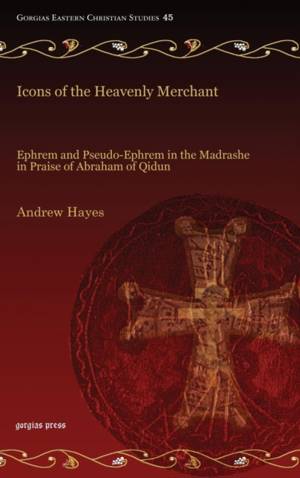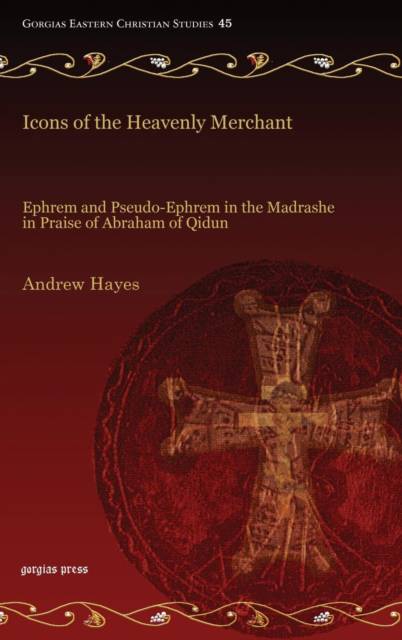
- Afhalen na 1 uur in een winkel met voorraad
- Gratis thuislevering in België vanaf € 30
- Ruim aanbod met 7 miljoen producten
- Afhalen na 1 uur in een winkel met voorraad
- Gratis thuislevering in België vanaf € 30
- Ruim aanbod met 7 miljoen producten
Icons of the Heavenly Merchant
Ephrem and Pseudo-Ephrem in the Madrashe in Praise of Abraham of Qidun
Andrew HayesOmschrijving
The fourth century saw a flowering of ascetic life in Mesopotamia under pioneers who coupled the ancient missionary-ascetic traditions of the Syriac speaking churches with more radical forms of withdrawal and seclusion. The life of one such pioneer, Abraham of Qidun (d. 367), illustrates both this transition and the powerful effect of such radical pursuit of holiness on the life and traditions of the churches. He was felt to be a "heavenly merchant" whose business was not in earthly wares, but in the very glory of heaven. His life inspired St. Ephrem the Syrian to compose a cycle of liturgical poetry in his praise--an icon in words, subsequently embellished and expanded by multiple imitators known to us now only as pseudo-Ephrem.
This monograph offers the first in-depth study of the madrasha cycle of 15 poems in praise of Abraham, with special attention to the intersection of rhetorical and poetic technique with changing ideals of holiness and ascetic practice. It looks closely at these works' disputed authenticity, their lexicon, verbal devices, and structure, to open a new window on the fascinating environment, discourse, and thought of early Syriac asceticism in the late fourth and early fifth centuries. A complete English translation of the cycle appears in the appendix
Specificaties
Betrokkenen
- Auteur(s):
- Uitgeverij:
Inhoud
- Aantal bladzijden:
- 422
- Taal:
- Engels
- Reeks:
- Reeksnummer:
- nr. 45
Eigenschappen
- Productcode (EAN):
- 9781463204143
- Verschijningsdatum:
- 26/04/2016
- Uitvoering:
- Hardcover
- Formaat:
- Genaaid
- Afmetingen:
- 152 mm x 229 mm
- Gewicht:
- 730 g

Alleen bij Standaard Boekhandel
Beoordelingen
We publiceren alleen reviews die voldoen aan de voorwaarden voor reviews. Bekijk onze voorwaarden voor reviews.











